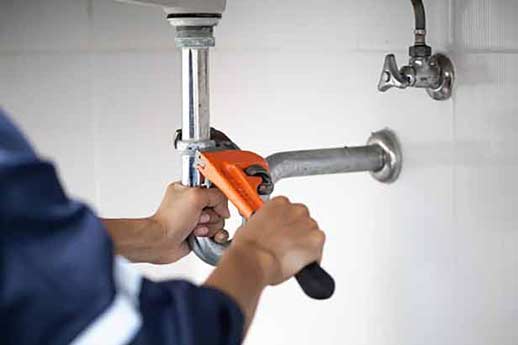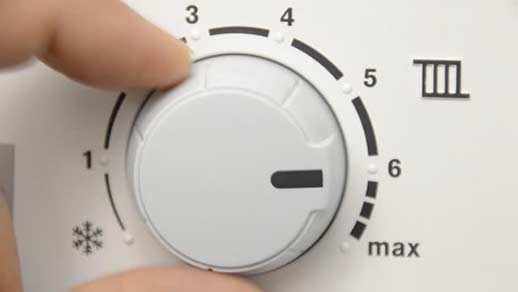Having a hot water shortage can be a major inconvenience and disrupt your daily routine. Whether it’s a chilly morning shower or the inability to wash your dishes, hot water plays a crucial role in our daily lives. Below we will explore the common causes of hot water shortages and provide effective solutions to address them.
Understanding Hot Water Systems
Before we dive into the causes and solutions, let’s quickly familiarize ourselves with how hot water systems work. Most homes have a water heater that stores and heats water for various uses. The heated water is then distributed throughout the house via pipes, ensuring a consistent supply of hot water.
Common Causes of Hot Water Shortages
Sediment Build-up
Over time, minerals and sediment can accumulate at the bottom of your water heater tank. This build-up reduces the efficiency of the heating element and can result in a diminished supply of hot water. Regular maintenance and flushing of the tank can prevent sediment build-up and ensure optimal performance.
Thermostat Issues
A malfunctioning thermostat can lead to incorrect temperature settings, causing the water heater to provide inadequate hot water. If you notice inconsistent water temperatures or a complete lack of hot water, it’s worth checking the thermostat settings or calling a professional to assess and potentially replace the thermostat.

Leaky pipes, valves, or fittings can lead to water loss, reducing the amount of hot water available for use.
Water Leaks
Undetected water leaks can cause a significant drop in hot water pressure and supply. Leaky pipes, valves, or fittings can lead to water loss, reducing the amount of hot water available for use. Inspect your plumbing system for any signs of leakage, such as damp walls, ceiling stains, or unexpected increases in water bills. Repairing the leaks promptly can restore the proper flow of hot water.
Inadequate Water Heater Capacity
If you frequently find yourself running out of hot water, it could be due to an insufficient water heater capacity. The size of the water heater should be adequate to meet the hot water demands of your household. Consider upgrading to a larger capacity water heater or installing a tankless water heater that provides hot water on demand.
Gas Supply Issues
For homes with gas-powered water heaters, disruptions in the gas supply can result in a complete loss of hot water. Ensure that your gas line is properly connected and that there are no issues with the gas meter or supply. If you suspect gas supply issues, contact your gas provider or a licensed technician to resolve the problem.
Electrical Problems
Electric water heaters rely on a functioning electrical system to heat the water. Faulty wiring, blown fuses, or tripped circuit breakers can interrupt the heating process, leading to a shortage of hot water. If you’re experiencing an electrical issue with your water heater, it’s advisable to contact an electrician to diagnose and fix the problem.
Aging Water Heater
As water heaters age, they become less efficient and may struggle to meet the demand for hot water. Corrosion, rust, and wear and tear can affect the performance of the water heater, resulting in hot water shortages. If your tank is nearing or past its expected lifespan, it may be time for a water heater replacement to ensure a reliable supply of hot water.

Adjust the temperature setting as needed to ensure an adequate supply of hot water.
Solutions to Hot Water Shortages
Regular Maintenance
To prevent sediment build-up and extend the lifespan of your water heater, perform regular maintenance. This includes draining and flushing the tank to remove accumulated sediment. Refer to your water heater manufacturer’s guidelines or consult a professional plumber for assistance with maintenance tasks.
Check and Adjust Thermostat Settings
If you’re experiencing inconsistent water temperatures, verify that the thermostat settings are correct. Adjust the temperature setting as needed to ensure an adequate supply of hot water. However, be cautious not to set the temperature too high, as this can pose a scalding hazard. It’s best to consult the water heater manual or seek professional advice when adjusting thermostat settings.
Repairing Water Leaks
If you discover any water leaks in your plumbing system, promptly repair them to restore hot water pressure. Depending on the severity of the leak, you may be able to fix it yourself or require the assistance of a nearby plumber. Addressing water leaks not only solves hot water shortages but also helps conserve water and prevent potential damage to your property.
Upgrading Water Heater Capacity
If your current water heater isn’t meeting the hot water demands of your household, consider upgrading to a larger capacity unit. A professional plumber can help determine the appropriate size based on your specific needs. Alternatively, tankless water heaters provide an endless supply of hot water by heating it on demand, eliminating the possibility of running out.
Gas Supply Maintenance
If you have a gas-powered water heater, ensure that your gas supply is uninterrupted. Regularly check the gas meter and connections for any issues. If you suspect a gas supply problem, contact your gas provider or a licensed technician for assistance. Remember to follow all safety guidelines when dealing with gas-related appliances.
Address Electrical Problems
In the case of electrical issues, contact an electrician who specializes in water heaters. They can identify and rectify any electrical faults affecting the heating process. It’s crucial to prioritize safety and refrain from attempting electrical repairs without the necessary expertise.
Replace an Aging Water Heater
If your water heater is reaching the end of its lifespan or experiencing frequent issues, it may be more cost-effective to replace it entirely. Upgrading to a new, energy-efficient model ensures reliable hot water and can result in long-term savings on energy bills. Speak with a professional plumber to determine the best water heater option for your home.
In Conclusion
Hot water shortages can disrupt our daily routines and cause inconvenience, but most issues have simple solutions. Regular maintenance, checking thermostat settings, repairing leaks, and addressing capacity or supply issues are effective ways to ensure a consistent supply of hot water. By understanding the common causes and implementing the suggested solutions, you can experience uninterrupted access to hot water in your home. If you encounter complex or persistent problems, it’s always best to contact a professional plumber to ensure safety and optimize the performance of your water heater.
